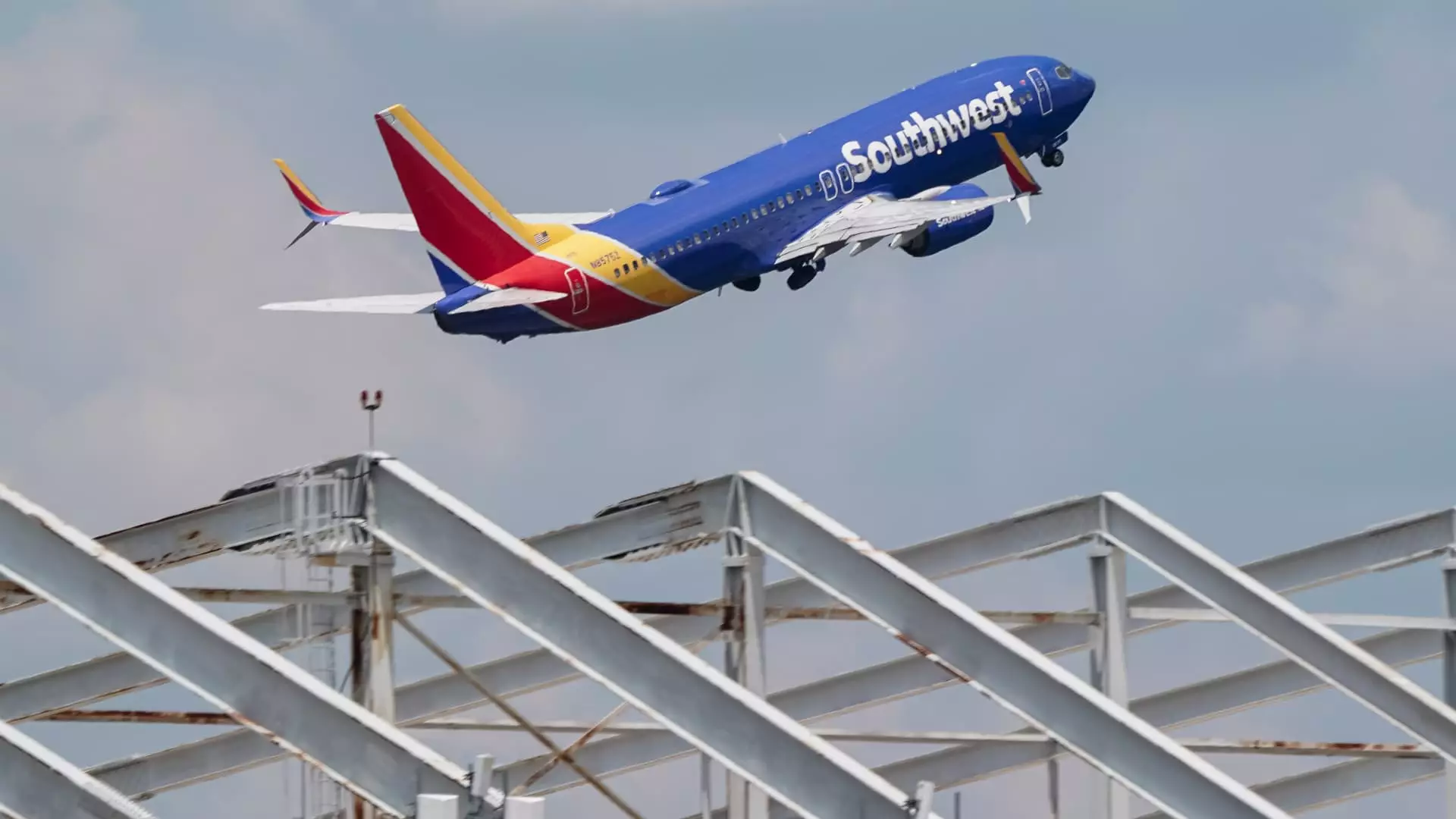In the context of the aviation industry, Southwest Airlines recently reported a decline in its third-quarter profits compared to the previous year. Despite these setbacks, the company’s financial results managed to exceed Wall Street analysts’ expectations, illustrating its resilience amid external pressures. The reported net income plummeted 65% year-over-year to $67 million, or 11 cents per share. However, when adjusting for non-recurring items, the airline’s net income for the quarter stood at $89 million, or 15 cents per share—surpassing the analysts’ forecasts which suggested the airline would break even.
A crucial element of the airline’s strategic landscape is its recent agreement with Elliott Investment Management, an activist investor. In this deal, both parties sought to avoid a potentially disruptive proxy fight. This agreement not only ensures the continuity of CEO Bob Jordan in his role but also brings six candidates proposed by Elliott onto the board, potentially reshaping Southwest’s governance structure. This relationship hints at broader implications for strategic decision-making within the airline, possibly signaling a pivot in operational priorities.
Looking ahead, Southwest Airlines has offered a cautiously optimistic forecast for the fourth quarter, projecting a 3.5% to 5.5% increase in unit revenue while anticipating a 4% reduction in capacity compared to the same period last year. Management acknowledges current travel demand remains robust, buoyed by strong holiday season bookings that affirm the ongoing strength in the leisure travel market. Interestingly, the company expects costs, excluding fuel, to surge by as much as 13%, pushing it to explore avenues for revenue enhancement critically.
To counteract rising operational costs, Southwest has put forth a comprehensive three-year strategy aimed at amplifying earnings before interest and taxes by $4 billion by 2027. A significant part of this effort includes a $2.5 billion stock repurchase program, with an initial $250 million designated for an “accelerated” buyback. Alongside financial maneuvers, the airline is contemplating major operational shifts, including the transition from its longstanding open seating policy to a model that charges for seat selection and introduces premium legroom options. This marks a paradigm shift in the carrier’s sales approach, highlighting the pressing need for revenue generation in an increasingly competitive market.
While Southwest Airlines faces challenges reflected in diminished profit margins, its proactive engagement with stakeholders, solid booking outlooks, and strategic adjustments position it to weather current storms. The combination of investor pressure and market dynamics necessitates a reevaluation of its traditional operations, pushing the airline into potentially transformative territory. As the company balances between maintaining its unique brand identity and modernizing its operational strategies, all eyes will be on how these changes unfold in a post-pandemic airline landscape.

Leave a Reply